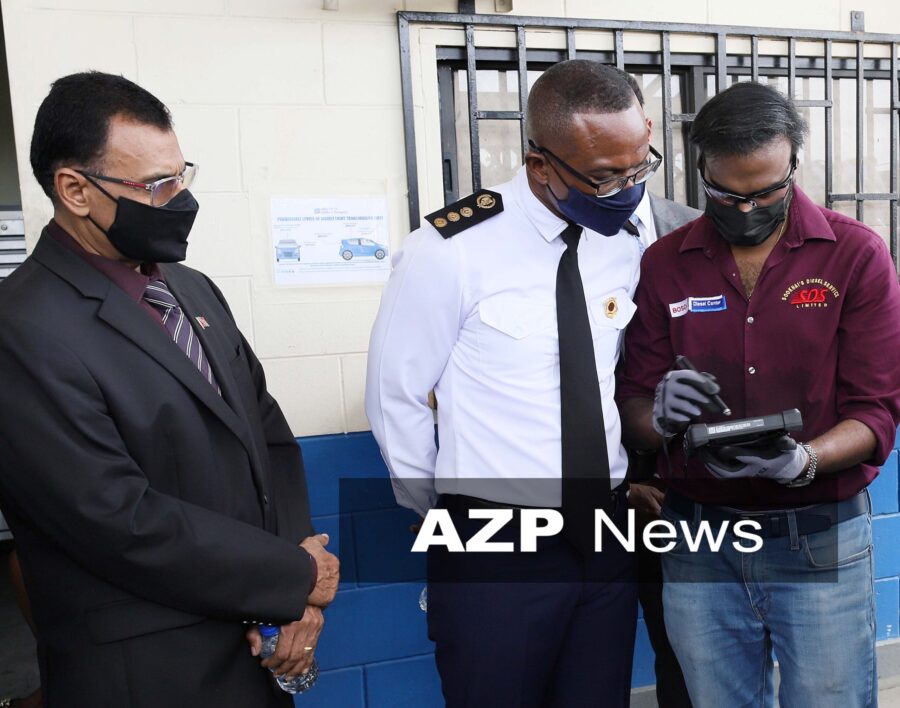
I READ with much interest the March 27, 2022, AZPNews.com business article: Licensing Office Moves from Zero to Hero – Sinanan.
In a nutshell, Minister of Works and Transport, Rohan Sinanan, was praising his Licensing Office for “embracing technology in the public sector”. Reportedly, in the future, almost all the services at the Licensing Office will be done online, including renewing driver’s permits and transferring vehicles.
But a controversial matter caught my eye. Transport Commissioner Clive Clarke reportedly stated that, “when a vehicle goes for inspection it (the Electronic Vehicle System or EVIS) could determine if there are any sanctions on the vehicle such as an outstanding ticket. He said the vehicle will not be allowed to be inspected once this matter was outstanding.”
I am hesitant to comment on matters which have not yet been made into law, because what a public official or politician says may differ from what actually passes into law. However, I will say this much. What the Transport Commissioner is alluding to is a coming law wherein people who missed the payment deadline for a motor vehicle traffic fine may end up not being able to drive their vehicle or even recover possession of their vehicle, until they pay the outstanding amounts.
On the face of it, some might argue that they see nothing wrong with this. But in previous commentaries, I expressed concerns about the quantum of some fines and the ability of the motoring public to pay the fines when due. For example, when enforcement of the motor tint laws kicks in from July this year, the fine for illegal tint is $5,000. This payment will be due in 30 days.
That $5,000 fine for an illegal tint is against a backdrop where the minimum wage in this country is $17.50 per hour (about the price of a loaf of sliced bread). A minimum-wage worker working regular 40-hour work weeks would need to work 285 hours to pay that fine. That’s just under two months with no money for bills, gas, taking care of the kids, rent, groceries, nothing, just to save enough to pay that fine.
Now, minimum wage workers who dare to own cars are being told that they may not have the use of their vehicle, even if it passes inspection, while they figure out how to pay the outstanding ticket. My argument has been that these fines should reflect the fact that they are mere traffic offences, not a crime. In principle, a single fine such as this should not cripple car owners financially to the point they may never recover because they become entangled in a circle of debt may have to go to jail, or may lose their vehicle because they cannot pay. These fines should be $500 at most, not $5,000.
On another point, I perceive a growing resentment from the public about the vast pool of police personnel and vehicles they see being used in roadblocks to target motor vehicle owners for traffic and motor vehicle transgressions. They see this as less about motor vehicle safety and more as a means to generate millions in revenue for the State treasury.

The argument is that in a country besieged by crime at all levels, protecting citizens and finding criminals should be the priority of the police service and should be where police resources are allocated.
While technology is certainly welcome where it brings better ease of doing business and more transparency and accountability, the entirety of the system seems likely to break down if social issues, such as those I mentioned above, are ignored. Time will tell.
Be safe Trinidad and Tobago.
Copyright © 2022 Neela Ramsundar, LL.B (HONS), L.E.C is a Civil Litigation Attorney at Law & Certified Mediator.
Disclaimer: The contents of this article are for general informative purposes only and/or contain the opinions and/or thoughts of the writer only. It does not provide legal advice and does not create an attorney-client relationship with any reader. For legal advice on your specific situation, please contact an Attorney-at-Law of your choosing directly. Liability for any loss or damage of any kind whatsoever allegedly incurred a consequence of relying on content in this article is thus hereby excluded to the fullest extent permitted by law.
![]()












